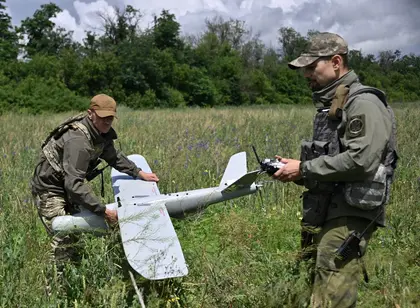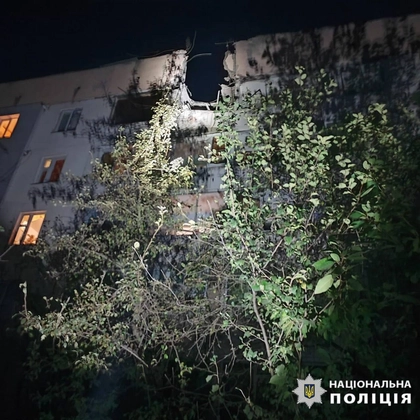Ukraine said it would produce more drones to offset its current artillery shortage while looking for ways to procure more artillery shells and other munitions.
In a BBC interview published Dec. 18, Deputy Defense Minister Lt.-Gen Ivan Havrylyuk said the shell shortage will likely continue, and Ukraine’s current solution is to produce more drones.
JOIN US ON TELEGRAM
Follow our coverage of the war on the @Kyivpost_official.
“Regarding artillery ammunition, this issue will continue to arise. Therefore, Ukraine has decided to solve these issues by creating a powerful production of UAVs,” he said.
Ukraine has been utilizing unmanned aerial vehicles (UAVs) – commonly known as drones – to counter Russia’s invasion. This included a range of hobbyist civilian drones and dedicated loitering munitions that could scout enemy locations and strike targets.
A first-person view (FPV) drone costing as little as a few hundred dollars could take out targets costing millions of dollars, and it is primarily this cost-effectiveness that led to the widespread adoption of drones in Ukraine.
As reported earlier by Kyiv Post, officials say they need between 100,000 and 120,000 drones a month, and the Ukrainian government allocated Hr.48 billion ($1.3 billion) for drone production in its 2024 budget.
Under the Army of Drones and Brave1 grant program, there are now more than 50 models of drones made in Ukraine.
Havrylyuk also said Ukraine is planning to produce enough Western 155mm shells locally in 2024 to “cover the difference between what is needed [on the frontline] and the number of shells that [its] partners can provide.”

Over 100 Ukrainian Drones Target Russian Regions, Strike Russia's Largest Explosives Plant
He said local productions for various types of Soviet munitions have also increased since the invasion began.
While some have criticized the stalled funding from the US and EU, Havrylyuk believed the issues would be resolved in the near future, and that Ukraine will continue to receive support from its Western partners.
“Not only the EU supports us, but each European country separately. For example, last month Germany gave us an aid package of about €1.5 billion, which included powerful air defense systems, artillery ammunition, etc. For next year, there is an agreement with the Netherlands, and they have planned funds for €2 billion to support Ukraine,” he said.
The lack of shells across the frontline has led to scaled-back operations, said Brig.-Gen. Oleksandr Tarnavsky, who led Ukraine’s counteroffensive in the Zaporizhzhia region.
According to a report released by the Estonian Ministry of Defense, Ukraine would need “a minimum of 200,000 rounds per month to retain localized fire superiority,” whereas the EU was only able to procure 480,000 shells as opposed to the 1 million pledged to Ukraine.
Meanwhile, Russia has continued to receive military aid from Iran and North Korea, where artillery shells supplied by the latter have been spotted on the frontline. Russia has also increased its defense budget for 2024 to an all-time high since the collapse of the USSR, as it transitions its economy for a protracted war.
You can also highlight the text and press Ctrl + Enter






